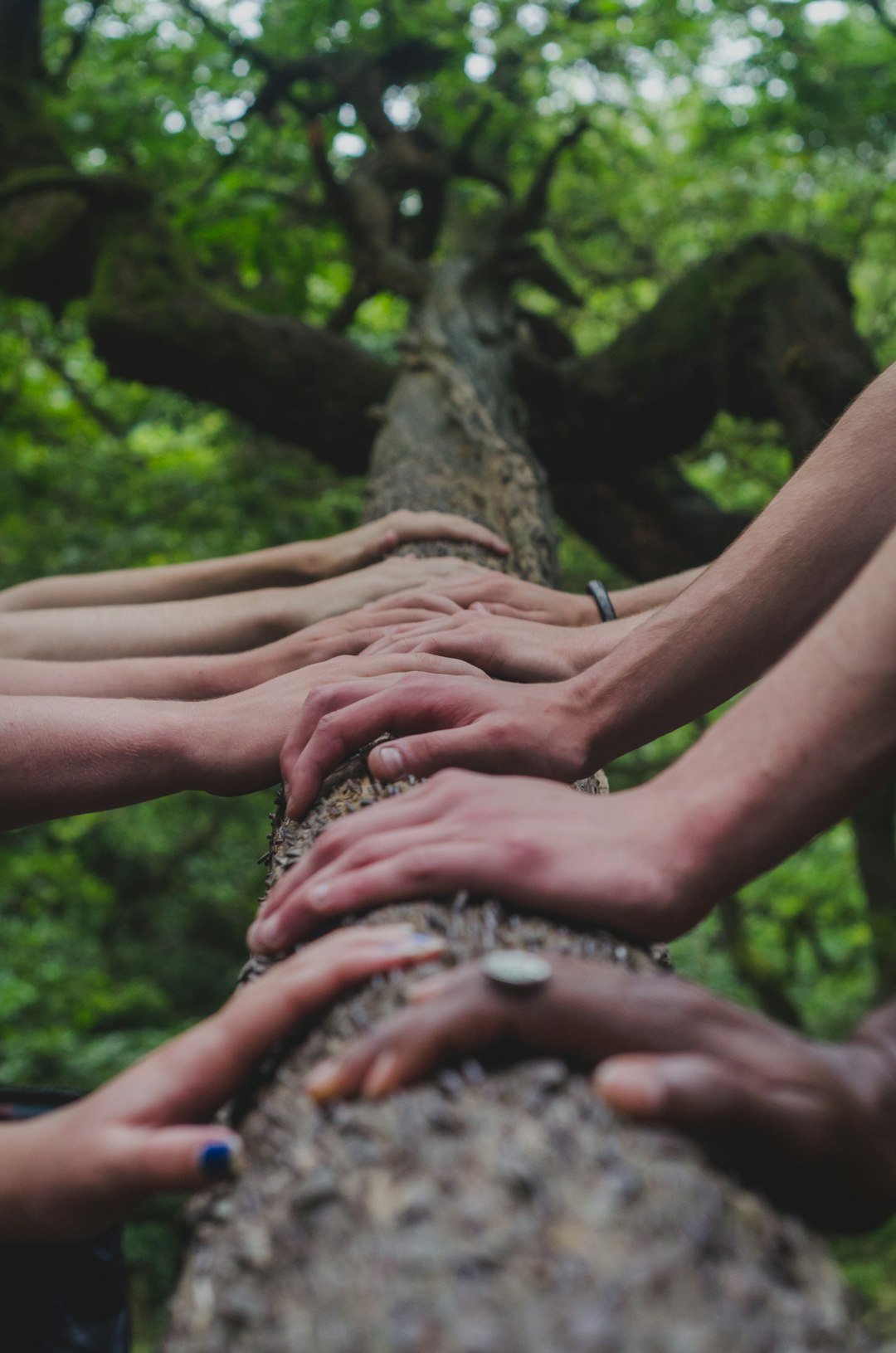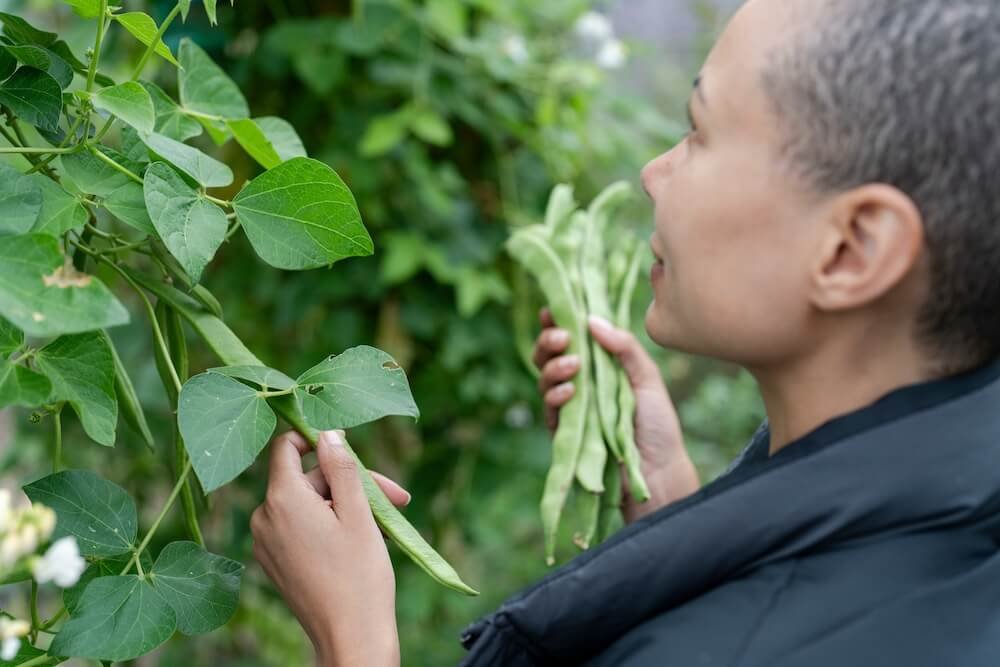
Who We Are
We are a team at Living on Earth and UMass Boston, who support environmental justice community members to develop podcasts on climate and environmental justice issues and successes.
Studies show that climate change disproportionately affects communities of color with impacts that include poor air quality, extreme heat and flooding. Black, Indigenous, and people of color (BIPOC) communities are also underrepresented in the climate workforce and receive fewer resources to advance climate solutions. We seek to engage problem solvers from communities on the front lines to help turn the tide on the climate crisis.
What We Do
As a Climate Hub with funding from the Waverly Street Foundation, we catalyze community action and advancement by spotlighting climate and environmental justice challenges confronted, and successes achieved.
Our team mentors and trains Black, Indigenous, and people of color (BIPOC) Fellows on media and story-telling skills to engage and learn from those most affected by the disruptions caused by our warming planet for community-driven, equitable climate solutions. Fellows develop their podcast stories on climate equity and deliver these to their own communities and to the wider world

Our Team
Principals
Andrew J. Skerritt
Senior Producer and Director
Andrew leads and mentors project Fellows and interns with an understanding of the major issues of environmental justice, environmental health and the climate emergency for diverse and historically disadvantaged communities and the impacts of local, national and world policies and challenges. Andrew supports podcast creation and production and is the liaison with partnering Historically Black Colleges and Universities (HBCU).
A veteran journalist and essayist, Andrew is the author of Ashamed to Die: Silence, Denial, and the AIDS Epidemic in the South (Lawrence Hill Books). Formerly a journalism professor at Florida A&M University (FAMU), and storytelling coach for the Tallahassee Democrat, he serves as associate director in the FAMU Office of Communications. Andrew holds a bachelor’s degree in journalism from Howard University, a Master of Liberal Arts from Winthrop University, and a Master of Fine Arts in creative nonfiction from the University of Tampa.
Andrew was born in London, England, and raised on the Caribbean island of Montserrat. He has published numerous essays regarding exile, displacement, and the search for home. His work has appeared in the Root.com, Tampa Bay Times, Caribbean Quarterly, Vol. 1 Brooklyn, the Michigan Quarterly, ESPN’s Andscape, Faith & Leadership, Obsidian Journal, and elsewhere. He is the founder and producer of The TropicZone podcast.
Stephen (Steve) Curwood
Executive Producer and Editor
Steve is the project’s Executive Producer and Editor, directing the project vision and managing the creative and technical processes and standards. He leads the project’s daily operations relying on his substantial experience as a producer, editor, and educator, integrated with a strong understanding of environmental justice issues and challenges. He mentors Fellows with technical and production best practices.
Steve is the Executive Producer and Host of Living on Earth, the weekly environmental news and information program distributed by PRX, located at the School for the Environment at UMass Boston. He is a professor of practice at UMass Boston faculty and an associate of the Harvard University Center for the Environment. Steve has been a journalist for more than 30 years, his work with public radio began as a reporter and host of Weekend All Things Considered in 1979. He hosted NPR’s World of Opera and worked at CBS News, the Boston Globe, WBUR-FM/Boston and WGBH-TV/Boston and shared the 1975 Pulitzer Prize for Public Service as part of the Boston Globe’s education team.
Steve is the recipient of the 2003 Global Green Award for Media Design, the 2003 David A. Brower Award from the Sierra Club for excellence in environmental reporting and the 1992 New England Environmental Leadership Award from Tufts University for his work on promoting environmental awareness. He is president of the World Media Foundation, Inc. Steve created the first pilot of Living on Earth in the Spring of 1990, and the show has run continuously since April, 1991. Some 250 Public Radio stations broadcast Living on Earth’s news, features, interviews and commentary on a broad range of ecological issues.
Dr. Robert (Bob) Chen
Principal Investigator
Bob aligns the CEJM joint center’s halves – Living on Earth and the University of Massachusetts, Boston (UMass Boston) School for the Environment, engaging the Digital Media Lab, the wider UMass Boston community, and the cohort of HBCU and Minority Serving Institutions. Bob will help plan the conference in the second year and convenes monthly meetings to share experiences with Project Fellows and interns.
A Professor in the School for the Environment and the Director of Grand Scholarly Initiatives at UMass Boston, Bob’s research interests include nature-based approaches for coastal resilience, development of sustainable and equitable offshore wind energy, and community participatory environmental problem solving. Bob is dedicated to ocean and environmental science education and outreach at the local, national, and international levels and transforming K-12, undergraduate and graduate environmental and aquatic science education. He was the Principal Investigator of the Watershed-Integrated Sciences Partnership (wisp.umb.edu), COSEE OCEAN (coseeocean.net), the Boston Energy in Science Teaching (BEST) (bostonscience.net), and Coasts and Communities IGERT projects, and is involved in Ocean Literacy and Energy Literacy efforts. More recently he has led efforts to diversify STEM, Engineering, and the Ocean Sciences (e.g. www.pathspartners.org). He has published over 70 peer-reviewed articles and received his AB in Chemistry and Physics from Harvard University, Cambridge, MA, and his PhD in Oceanography from Scripps Institution of Oceanography, La Jolla, CA.
Dr. Elizabeth “Betsy” L. Sweet
Co-Principal Investigator
Betsy aligns with the project through the University of Massachusetts, Boston (UMass Boston) School for the Environment, the Department of Urban Planning and Community Development and her community research programs. Betsy supports Project Fellows and interns sharing her research efforts and community programs.
Betsy is Associate Dean of UMass Boston’s School for the Environment and Associate Professor of Equitable and Sustainable Development, Department of Urban Planning and Community Development. An expert in planning theory and qualitative research methodologies, she teaches at UMass Boston’s Urban Planning and Community Development Program. Her work on collaborative community economic development focuses on the links between economies, violence, and identities. Using feminist, anti-racist and decolonial frameworks, her research with U.S. Native, Black, Latino and Latin American communities has led to long term collaborations and inclusive projects that both push the boundaries of planning theory and methods while at the same time provides practical planning interventions.
In recent publications she has proposed the use of body map storytelling and community mapping as innovative ways to co-create data and strategies with communities on a wide range of issues and urban problems. Currently she is working in Mexico to support the uncovering of Native and Afro-Mexican traditional ecological knowledge as well as in Chicago with Mexican migrant women’s efforts toward healing from multiple kinds of violence through a process called community accountability. Betsy received her PhD on Public Policy Analysis-Urban Planning and Policy, at the University of Illinois at Chicago, a Master of Urban Planning and Policy (MUPP) from the University of Illinois at Chicago, and a BA in Soviet and East European Studies from Boston University.
Fellows
Paloma Beltran
Paloma graduated from the UMass Boston School for the Environment class of 2019 where she majored in Environmental Studies. Her journey with environmentalism began in her home of Baja California, Mexico where she experienced water shortages, particulate matter pollution, extreme heat and mass migration across the U.S. Mexico border. She joined Living on Earth as an intern in 2018 and moved into a full-time producer role in 2019. She’s passionate about stories involving ecojustice, indigenous communities and environmental policy.
Daniela (Dani) Faria
Dani is an Architect and Urban Planner who graduated from the Federal University of Minas Gerais (UFMG) in Brazil, where she also completed her master’s in architecture and urban planning (NPGAU-UFMG). Currently, she is pursuing a Ph.D. in Environmental Sciences at the University of Massachusetts Boston (UMass Boston), where she also serves as a Teaching Assistant. Her professional experience includes working at the Belo Horizonte City Hall (2019-2022) and Projeta (2022-2024), with a career focused on Urban Planning and the rights to the city. Dani’s research interests encompass environmental justice, social justice, and gender issues.
Nana Mohammed
Nana is a Nigerian journalist and documentary filmmaker currently studying science, health, and environmental reporting at the New York University Arthur L. Carter Journalism Institute. She is deeply passionate about reporting on climate change and the intersection between science and society. Nana has covered significant stories such as climate change exacerbating the immigration crisis affecting local fishermen along the West African coast of Senegal, documented the devastating impact of floods, attributed to climate change, on farming communities in Nigeria and produced short films addressing human rights violations and gender discrimination. Her documentary highlighting the profound effects of flooding on Nigerian farmers sparked her interest in the Science, Health and Environmental Reporting Program (SHERP) at NYU, where she became one of the program’s first African journalists and won the World Journalism Fellowship. She is looking forward to working with the BIPOC community, telling their stories and amplifying their community voices.
Kayla Bradley
Kayla is a graduate student in Dr. Bob Chen’s Lab in UMass Boston’s Environmental Science program. She is working to empower environmental justice communities to learn about, advocate for, and participate in climate change adaptation efforts. For her undergraduate thesis she led an original research project in collaboration with Stone Living Lab called Coastal Surge Investigators (CSI), a community science project aimed to measure the extent of coastal flooding events in Boston, particularly in marginalized communities. She is interested in understanding indigenous views of climate change and adaptation, with a focus on the increasing challenges of sea-level rise and storm surge for tribes along the Massachusetts Coast and reducing urban heat in historically marginalized neighborhoods.
Sommer Heyman
Sommer is an undergraduate Student at UMass Boston studying Environmental Science, with a concentration in Policy and Management and a minor in Community Development. While interning at Epsilon Associates Inc., they gained experience in environmental permitting, wetland delineating/mitigation efforts, construction site inspections, and environmental justice analysis. Sommer plans to use their academic knowledge to be an advocate for environmental justice (EJ) to ensure that communities have equal access to natural resources to achieve sustainable development. Their focus areas in CEJM are in community resilience and opportunities, climate and eco-unjust health/education.
Melba Torres Sosa
From the microscopic architects of life to the human systems shaping our planet, Melba is fascinated by how life interacts across scales. As a PhD student in Integrative Biosciences at UMass Boston, she studies how microbes interact with larger organisms and our marine urban environment to tackle environmental challenges, while exploring science’s intersection with policy and society. Growing up with little access to nature, she fell in love with the natural world through media such as Animal Planet and National Geographic, an experience that drives her commitment to accessible science communication and storytelling. As a self-taught graphic designer, she’s created visuals for research publications, the Stone Living Lab, UMass Boston, and Friends of the Boston Harborwalk. As part of the Living on Earth team, she hopes that the stories produced inspire curiosity and stewardship of our planet’s human and more-than-human inhabitants.
Interns
Ashanti Mclean
Ashanti Mclean is a rising Environmental Studies student at UMass Boston. Originally from Hartford, Connecticut, Ashanti is intrigued by many environmental issues but have a passion for energy justice and urban planning. Her general interests include traveling and being with family.

